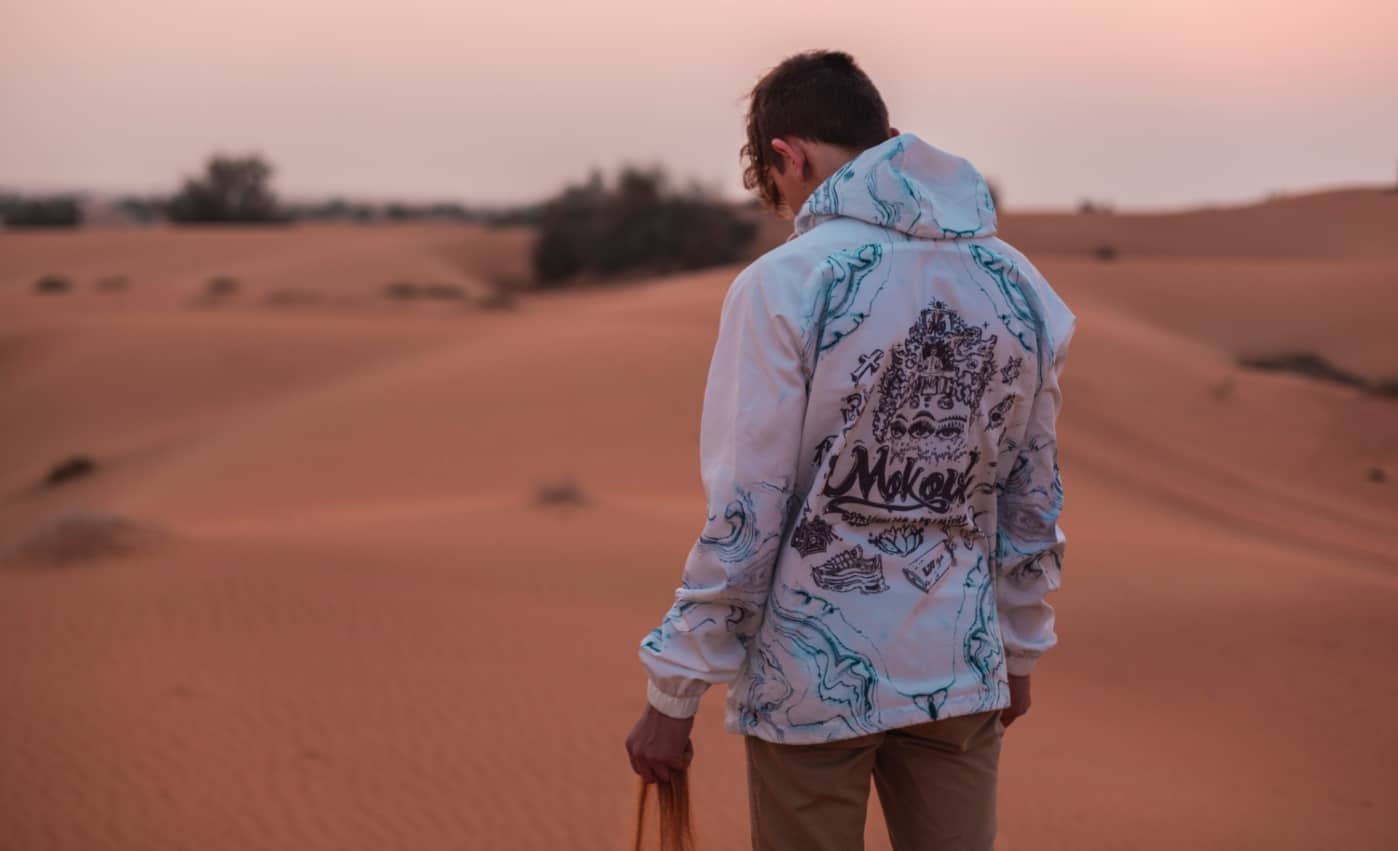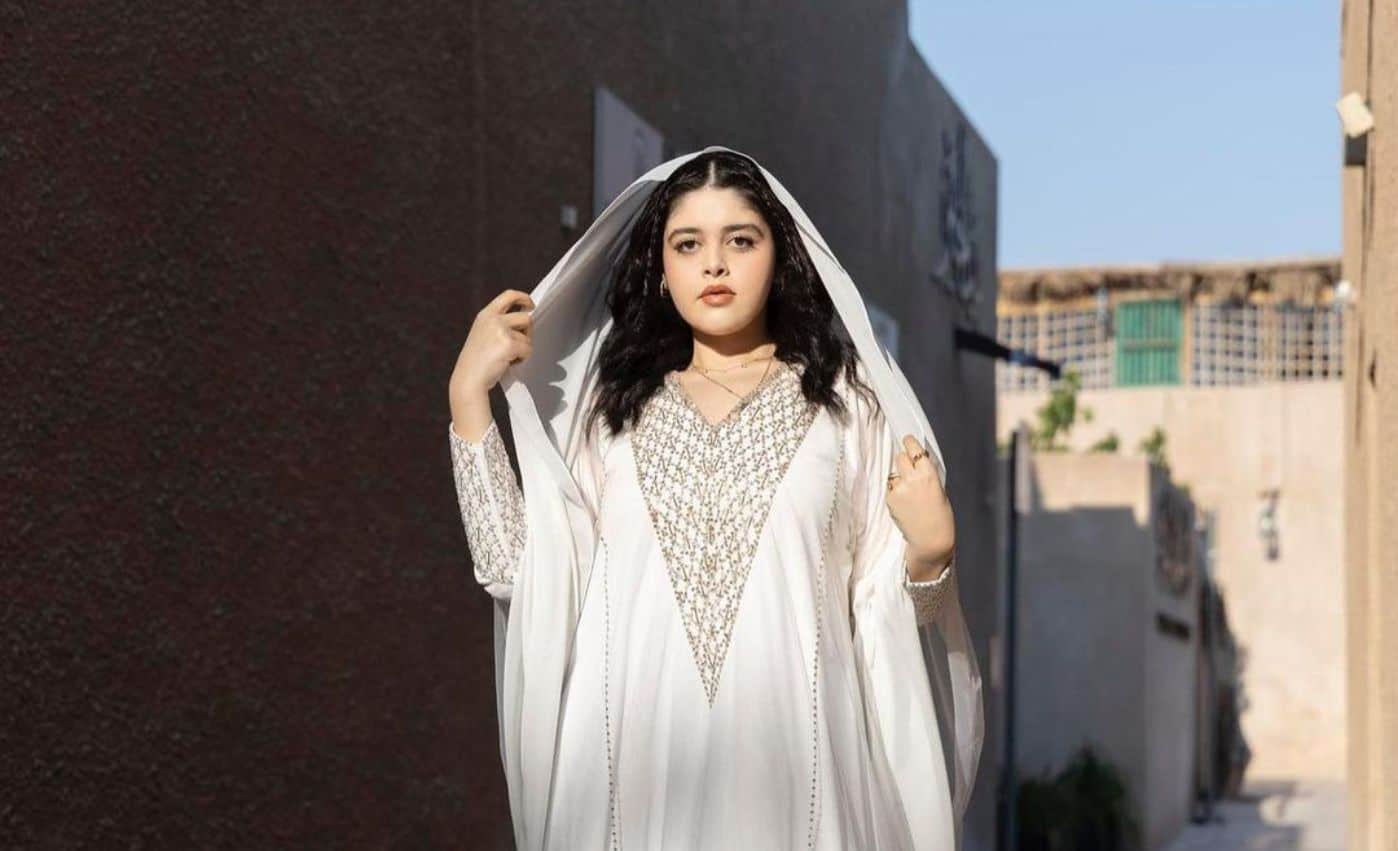In January, Beyoncé made headlines for more than just being Beyoncé. The pop megastar had flown out to Dubai where she performed for the first time in four years to mark the city’s newest glitzy hotel, Atlantis The Royal. Her 1,000+ audience was made up of some of the world’s biggest influencers, including Kendall Jenner, Leonie Hanne, and Ashley Park, setting the tone for sponsorships throughout the rest of 2023.
During the course of the year, multiple brands in the Middle East have run campaigns featuring creators based outside the region, rather than working with local talent. Saudi Arabia has been on this beat for a while, bringing over the likes of Sabina Trojanova and Marinela Bezer to promote the country as a tourist destination. Travel is often the main focus of this kind of collaboration – such as One&Only Royal Mirage hosting Tamara Kalinic and Fairmont hosting Emna Naili — which makes sense, considering their audiences are the exact demographic they’d hope to target.
What’s more surprising is that brands have brought in influencers to target the local audience, too. The most infamous example is Tarte’s headline-making trip to Ras Al Khaimah which saw Alix Earle, Meredith Duxbury, and co. spend three days posing in the desert. What most of the critical headlines skipped was that it wasn’t solely a Tarte trip. Alix Earle’s rendezvous in the sand was also sponsored by Sephora Middle East, whose audience surely doesn’t have much of an overlap.
You may also like
Similarly, Dubai Esports and Games Festival recruited British gaming YouTuber and one seventh of the Sidemen, Simon Minter, to promote the Middle East’s gaming showdown. Notably, 69% of Minter’s audience is based in the United Kingdom. Meanwhile, Valentino brought Leonie Hanne to Dubai as its ambassador at the opening of Atlantis The Royal, and Hugo Boss launched its “see now, buy now” collection in the region with international TikTok mega-stars such as Khaby Lame, Wisdom Kaye, and Younes Zarou.
There are some global brands that have made the effort to target the local audience with local creators. For example, Nike called on Saudi Arabian hip hop artist Dyler to create a song promoting its Dubai Mall flagship store and Loewe worked with Karen Wazen, Yara Alnamlah, Mohammed and Humaid Hadban and more for a campaign poking fun at how hard it is to pronounce the brand’s name. There are also those who integrate a mix of both local and international creators to reach as wide an audience as possible – but the number of those recruiting creators from further afield has soared since the pandemic.
Flying influencers abroad considerations
For those who choose to work with international talent in the Middle East, there are a few things to consider. There have been multiple high-profile cases of influencers running into trouble in the region due to a lack of cultural understanding (or a lack of respect for the law). In February, former Love Islander Kaz Crossley was arrested upon landing in Abu Dhabi after a video leaked appearing to show her taking drugs. Tierra Allen – the Texas-based TikToker also known as the Sassy Trucker – was detained in Dubai for several months after an argument with a car rental company, while another TikToker known as the Car Expert was arrested after posting a video satirising the emirate’s wealthy citizens.
You also need to prepare for the fact that you may receive backlash. Tarte’s UAE trip drew criticism not only for the display of exorbitant wealth in the midst of a cost-of-living crisis (it reportedly cost around US $65,000 (£51,000) per attendee) but also for the environmental implications of flying out so many creators from the other side of the world for just a few days (ironic, considering that the brand touts itself as “a cruelty-free cosmetics company that places a priority on sustainability”).
While it’s questionable how much exposure a brand gains from the local market when they base a regional campaign around international creators, theoretically the idea is that global attention trickles down to the local market. However, another thing to consider is that drawing the eyes of the Western audience to the Middle East also brings opinions on outdated stereotypes. The launch of Atlantis The Royal, for example, triggered widespread debate among Beyoncé’s LGBTQ+ fans.
Done right, flying influencers out to the Middle East can be a powerful tool for expanding a campaign’s audience. The region is also packed with expats, so it requires creativity and variety if you want to reach everyone in your demographic. However, there are pitfalls to doing so – and the only way to avoid them is recognising them in advance.
By Chloe James, CORQ Middle East correspondent. Picture credit: Leonie Hanne via Instagram










